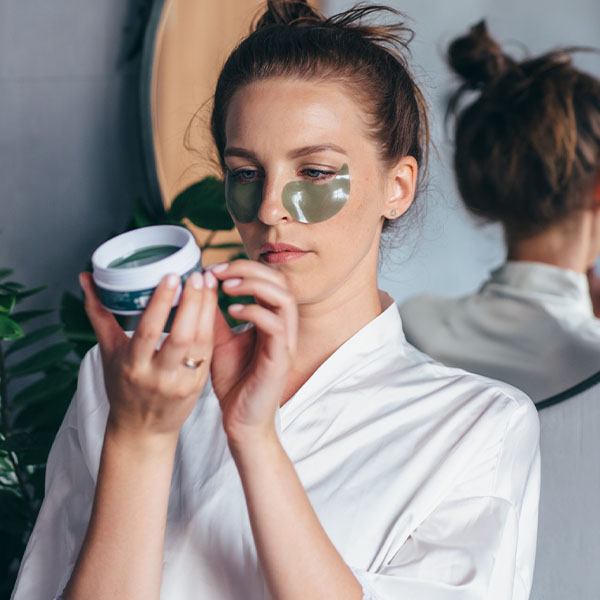- SHOP
PRODUCTS
SKIN TYPE
CONCERN
- DISCOVER SBC
- REWARDS
- CONNECT
- SKIN ADVICE
- CUSTOM FORMULATION
- BLOG
- SHOP
PRODUCTS
SKIN TYPE
CONCERN
- DISCOVER SBC
- REWARDS
- CONNECT
- SKIN ADVICE
- CUSTOM FORMULATION
- BLOG
Finding out what the best skincare products are can be overwhelming. There are so many options, and it’s easy to get caught up in finding your perfect combination of ingredients. But don’t worry about getting it wrong! We’ve put together this guide for finding the best skincare products for you, so read on, and we’ll help you choose your ideal skincare routine.

The first step to finding the best skincare products for you is deciding which type of product you want to test.

When looking for a skincare product, it’s important to know the active ingredients. Many companies will list their ingredients in order of quantity—this is not always the best way to go about it!
Function: The function of an ingredient describes what kind or purpose it serves in your skincare products (for example, moisturizing). This can help you determine whether or not you need something like vitamin E oil on top of your morning routine.
Source: If there are multiple suppliers for an ingredient (like coconut oil), choose whichever supplier has higher quality ingredients. Also, check whether any animals were used during processing; if so, choose another product instead!
There are a few things to consider when choosing skincare products. First of all, different products work better together than alone. It’s important to know what your skin needs and what it doesn’t need to achieve the best results. Some skincare products work better together than others, so it’s always good to ask yourself: “Which combination will give me the best results?”
For example: If you have oily skin and acne-prone skin that is also sensitive, then using an oil-based cleanser with salicylic acid can make your face feel dry due to the combination of the strong acid and the friction of rubbing your face dry with a towel). A water-based cleanser works well on both types of skin because it is softer and generates less friction during cleansing—it just sloughs away dead cells without causing any irritation!
When shopping for skincare products, it’s essential to look at the product descriptions. You can find this information online or in-store. On the packaging of your chosen product, there will be a little bit of text about what it does and how it makes you feel. This is great because you immediately know whether this particular product is right for you!
You also want to check out the brand’s website, which will have more detailed information about each product. Those websites might be able to provide even more information about each individual item than would be possible if one were just buying them from an online retailer like Amazon or Target. Remember, though: don’t overload yourself with too much info at once!
If you can, take the time to go into the store and try out products on your skin. This will help you get a better understanding of what works for you.
Try out different moisturizers, eye creams, and cleansers to see which ones work best for your skin type. You might even want to ask if they have samples available so that you can test them out before committing yourself financially to an expensive purchase (or multiple purchases).
Look for cruelty-free brands that are also vegan-friendly since many people prefer these types of products over animal-derived ones due to their effectiveness in treating certain conditions like eczema or acne breakouts without causing irritation or burning sensation when applied directly onto the face area where sensitive skin would be exposed during the application process.
Skincare is a product category that can be overwhelming, and it’s important to know what you’re looking for. If you don’t have time to go shopping and try out all the products yourself, there are plenty of other ways you can get samples:
A professional can help you find the right products for your skin type, concerns, and lifestyle.
Finding the best skincare products for you can be tricky, but doing some research will help you make informed choices about your skincare routine.
Find out what kind of skin you have. First, it’s essential to know if your skin is oily or dry and choose a product based on that information. For example, if you have oily skin (or combo), an oil-based serum may not be the best choice for your needs since it can make greasy areas even more oily, which causes further problems down the line. Instead, try an emollient cream or lotion, as these tend to work well at absorbing excess oil without causing any irritation!
We know that finding the best skin care products can be tricky, but with a bit of research and some good advice from your dermatologist or another skincare expert, you’ll be on your way to making smarter decisions about your skincare routine. We hope this article has given you some ideas for where to start when finding the right product for your needs. If you still have questions or want more information, talk to us! We’re here to help.

One Response
Thanks for sharing. I read many of your blog posts, cool, your blog is very good.